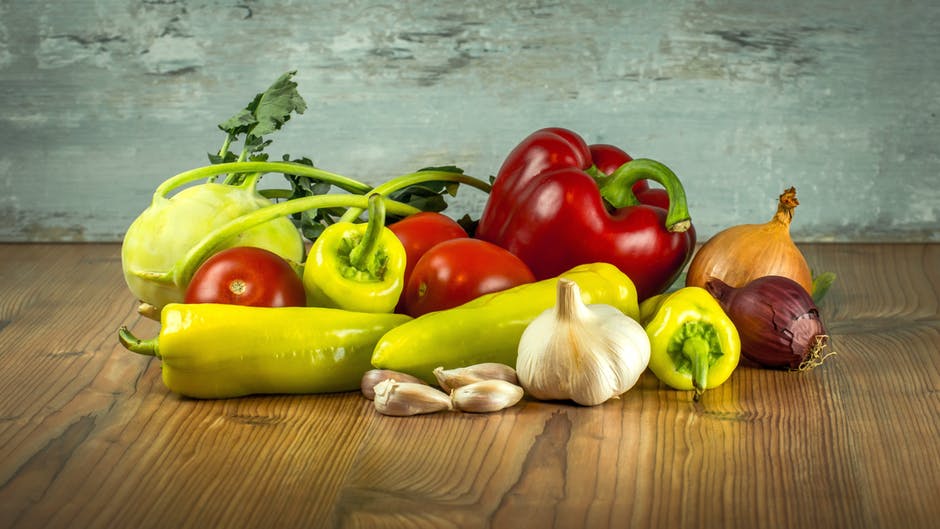A famous French 18th-century politician and gastronome Jean Anthelme Brillat-Savarin once said: “Tell me what you eat and I will tell you what you are”. While some people may be skeptical about the truthfulness of this statement, there indeed seems to be a strong correlation between one’s diet and their health, attitudes and habits in general.
A poor diet may result in decreased mental effectiveness, low energy levels, decreased productivity and even a reduced ability to think clearly. Unfortunately, these few aforementioned problems easily find their way to virtually any aspect of your personal and professional life. With this in mind and in order not to allow such atrocities from happening to you, here are few ways in which you can increase your productivity and boost your energy by eating the right foods. Still, the choice of nutrients is usually not enough on its own, you also need to introduce the reform of your overall eating habits. Here are few tips on how to do so.
Table of Contents
1. Make a Schedule
Before you even start introducing a revolution into your eating schedule, you need to start making some preparations. First, you need to have a well-conceived eating schedule. This consists of three proper meals and two fruit snacks. Ideally, you would make these breaks between meals at about 6 hours each, but you might not be able to coordinate this with your work schedule. This is why, you need to plan everything including the time you get up in the morning, the time you take your lunch break and the time you go to bed in the evening.
Finally, skipping meals is the last thing you should do, seeing how it deprives your body of all the necessary vitamins and minerals it requires. Furthermore, starving yourself to death isn’t really helping you lose weight.
2. Think About Food Storage
Seeing how every good eating regimen consists of various completely different food, you will probably have the inclination towards buying in bulks. This puts you in a difficult position of deciding where to store different types of these foods. For foods like onions and garlic, any cool and dry place will do and when it comes to tomatoes, potatoes, bananas or citrus, they should probably be left on the counter.
Now, we come to the interesting part. Eggs, dairy products, mushrooms, vegetables and meat need to be kept in the refrigerator. The dairy products are best kept on the top shelf, eggs usually have their own compartment in the door, but when it comes to the meat, you are supposed to keep it in the coldest part of the freezer (usually bottom shelf). Seeing how all of these items classify as perishables, you would be wise to keep your eyes out on the state of your fridge as well. According to experts behind Appliance Repair Sydney company, frost building up on fridge walls, electricity bill going up and fridge not making noise are some of the indicators that your fridge might be on its last legs.
Finally, when it comes to the lunch you take to work, you will have to find the right container for it. Still, keep in mind that you need to clean the containers thoroughly, toss perishable leftovers as soon as you are done eating and keep everything clean when you start packing. Failing to do any of these things can put your food (and therefore your health) in great peril. Also, once you start packing your food, you will have more time to exercise and thus increase your productivity on a whole another level.
3. Choosing the Right Nutrients
Now that you have your daily schedule and your storage options all figured out, let’s get down to business and start discussing foods that can enhance your productivity. There are several studies claiming that in order to boost your cognitive skills you need to consume four vital ingredients on a daily basis: folate, omega-3 fatty acids, vitamin C and vitamin E. Aside from this, your regular sustenance requires protein and carbohydrates.
With the aforementioned few tips in mind, it would be best if your breakfast would consist of low-fat protein and dairy, like those found in hard-boiled eggs, lean meat, tofu or skim milk. As for your carbohydrate source, the best idea would be to go with whole grains.
For your snacks, it is usually a great idea to go with spinach or almonds for your source of vitamin E, while berries, citrus and kiwifruit are packed with vitamin C.
When it comes to your lunch, you need to think about those foods that are easy to pack. Tuna, sliced eggs and salads come as the most obvious choice, still, it is vital that you keep them separate while packing. This too is one of the reasons why you need to be extra careful in your choice of lunch container.
As for the dinner, this is where you should probably let your imagination run wild. You can experiment with meals like barley-stuffed poblanos, grapefruit and avocado salad with seared salmon or even stick to something simpler like brown rice bowl with turkey. All of this lean meat is even more important for those who manage to squeeze a training into their daily schedule (which is also highly recommended).
In Conclusion
From all the above mentioned, it becomes more than evident that when you eat, how you eat and even the way in which you store your ingredients all matter almost as much as the content of your plate. Sure, introducing all of these changes may seem quite frightening at the moment, but should you manage to endure just one month on this regimen, it will all come naturally to you. Aside from making you feel more energetic, more productive and improving your mental capacities, these few eating (and food treatment) habits, will significantly improve your health, as well. It simply doesn’t get any better.





